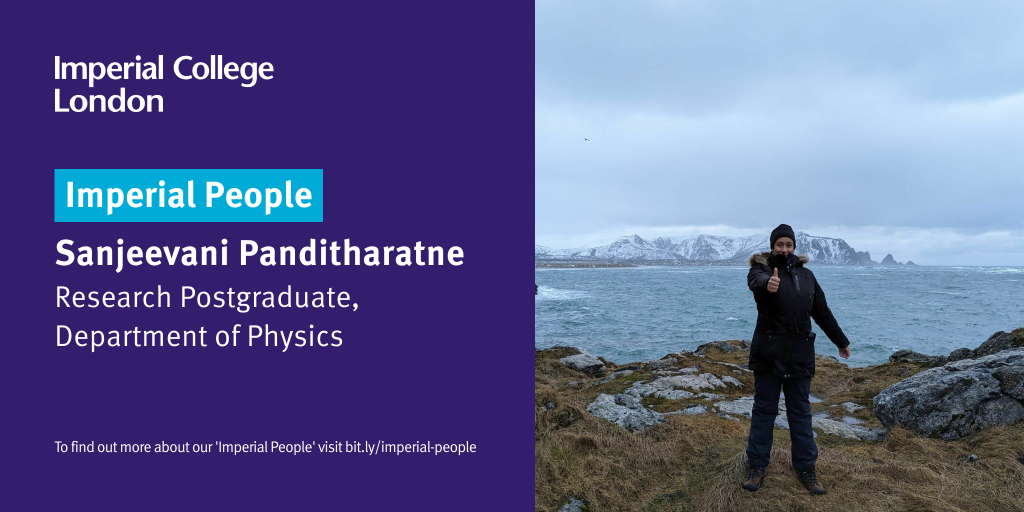
“Climate change is the greatest challenge facing this generation, and a deeper understanding of it is vital for our planet’s future.”
After graduating with a degree in Chemical Physics from the University of Bristol, I started a PhD in the Space and Atmospheric Physics research group, as I’m determined to work in the field. Climate change is the greatest challenge facing this generation, and a deeper understanding of it is vital for our planet’s future.
My research is focused on the Earth’s Radiation Budget, the difference between incoming radiation from the sun and the loss of energy to space through the reflection of solar radiation or the emission of thermal radiation – the kind of radiation that keeps us warm. Because of human activities, more thermal radiation is being trapped in our atmosphere, leading to a rise in the average global surface temperature. Models suggest that around half of the thermal radiation reaching the top of our atmosphere is in a region called the far-infrared.
Due to technical limitations, the top of atmosphere spectrum across the far-infrared has never been measured before. However, this is due to change with a number of upcoming space missions including the European Space Agency’s Far-infrared Outgoing Radiation Understanding and Monitoring (FORUM) mission that is due to launch in 2027. Now that’s where I come in!
I’m part of the FORUM team at Imperial, and my work has taken me from our South Kensington Campus to the Arctic Circle, all to nail down how different components of our Earth’s system interact in the far-infrared. I focus on the effects of water vapour, our strongest greenhouse gas, and its role influencing the earth’s radiation budget.
There’s still lots of research to do – with our team developing a unique airborne instrument that measures in the far-infrared, and our ground-based instrument raring to go on another expedition. Here at Imperial the sky is in fact not the limit!